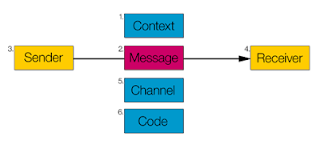And here is a very recent one not from psychology (I hope you are not eating):
I’m not sure I have actually read the two psychology articles (I am sure I didn’t read the fecal one) but their titles certainly have stuck with me. Does having an amusing title may make an article more memorable and therefore more likely to be cited? According to the availability heuristic the answer is yes but the data suggest otherwise.
A citation analysis concludes the following: the use of exceptionally amusing titles (2 standard deviations above the average rated amusement) was associated with a substantial ‘penalty’ of around 33% of the total number of citations. Of course this does not mean that amusing titles cause an article to be less cited but clearly amusing titles are not associated with high citation rates.
Why use amusing titles then? I can think of a few reasons.
- The authors want to show that they’re not stodgy intellectuals but actually a lot of fun.
- The authors want to show they’re no strangers to literature or popular culture. (Did you get the Nirvana allusion, nudge nudge, wink, wink?)
- The allusion is almost inevitable. When a study compares two things, authors can’t seem to avoid starting their title with “A tale of two…” I entered this phrase in Google Scholar and got 168,000 hits! There are tales of two theories, methods, studies, paradigms, diseases, auto plants, serines, webspaces, calcium channels, futures, perspectives, responses, mechanisms,researchers, sciences, phases, semiconductor nanocrystals, fibrillations, and yes, cities.
- Some people are attracted by perceived inappropriateness of combining science and humor. It’s naughty. Science is serious business, sousing humor is a little like swearing in church or sex in the workplace (not that I would know, of course).
- The title is used as a clever repartee to the title of anearlier study. A sort of intellectual jiu jitsu: using your opponent’s force against himself. In a class I teach, I assign an article called Turning the tables (which is a punny description of the task used in the experiments) and the response to it, which is called Returning the tables (don’t worry, I don’t assign these articles just because of their titles.)
- The researchers involved in the project informally refer to it in a clever way during lab meetings. The pun sticks and becomes the title of the article.
All of these factors may play a role in the creation of amusing titles but I think there is an even more potent factor. Researchers are under increasing pressure to communicate their findings to a broader audience. A memorable title can be used in a press release and readily be adopted as a headline in a news report. Researchers provide their own ready-made headlines. I have some recent experience with this, where a title intended as a parody on non-literal titles took on a life of its own and may have contributed to us winning an Ig Nobel Award. But more about this in a future post.
The Russian linguist Roman Jakobson has developed a theory about the functions of language. In his model, there is a sender who sends a message to a receiver about a certain context through a certain channel using acertain code. For example, I am sending you a message through the visualchannel in the code of English about the context of amusing titles.
Each of these components can be emphasized in the message. So there are six functions of language. The ones that are relevant here are thereferential function and the poetic function. In the referential function, the focus of the message is on some content area. In the poetic function, the focus of the message is on the message itself. Using the expression piece of shit in the title of a scientific article certainly puts the focus on the title itself (though calling it poetic might seem a stretch).
Multiple functions are at work simultaneously in a text but there is always one dominant function. In the type of titles we have discussed here the poetic function is dominant. This also explains why amusing titles are easier to remember: they focus attention on themselves.
In the current climate, journal articles will likely become less narrative and more report-like, as I described in an earlier post. As a result, the poetic function will give way to the referential function. The focus will be on the content and not on the writing. This does not mean that amusing titles and puns will disappear from scientific discourse though. Nor should they. They have a natural habitat in the blogs that researchers write about their work.
Update
Neil Martin just sent me a whole list of hilarious psychology titles. Thanks, Neil!
Update
Neil Martin just sent me a whole list of hilarious psychology titles. Thanks, Neil!

Scanning Dead Salmon in fMRI Machine Highlights Risk of Red Herrings.
BeantwoordenVerwijderenhttp://www.wired.com/wiredscience/2009/09/fmrisalmon/
Thanks! I'm actually using this one in a class I'm teaching right now. I'd be interested in more suggestions.
BeantwoordenVerwijderenI have been searching for hours and I haven’t found such awesome work.
BeantwoordenVerwijderensspin